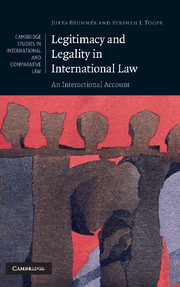5 - Torture
undermining normative ambition
Published online by Cambridge University Press: 05 July 2013
Summary
Tell me yourself directly, I challenge you – reply: imagine that you yourself are erecting the edifice of human fortune with the goal of, at the finale, making people happy, of at last giving them peace and quiet, but that in order to do it it would be necessary and unavoidable to torture to death only one tiny little creature, that same little child that beat its breast with its little fist, and on its unavenged tears to found that edifice, would you agree to be the architect of those conditions, tell me and tell me truly?
Ivan to Alyosha, Dostoevski, The Brothers Karamozov, Tome I, Book V, Ch. 4Freedom from torture is an inalienable human right, and we are committed to building a world where human rights are respected and protected by the rule of law. … Many have been detained, arrested, thrown in prison and subjected to torture by regimes that fail to understand that their habits of control will not serve them well in the long term.
President George W. Bush, Statement, 26 June 2005Introduction
In the United Nations Convention against Torture, torture is described as:
… any act by which severe pain or suffering, whether physical or mental, is intentionally inflicted on a person for such purposes as obtaining from him or a third person information or a confession, punishing him for an act he or a third person has committed or is suspected of having committed, or intimidating or coercing him or a third person, or for any reason based on discrimination of any kind, when such pain or suffering is inflicted by or at the instigation of or with the consent or acquiescence of a public official or other person acting in an official capacity …
The United Nations Committee against Torture has stated that the prohibition against torture in international law is absolute; that it is a norm of customary international law that must be met at all times. Doctrinal and popular writers typically adopt the same position: torture is subject to ‘one of the few worldwide legal prohibitions’ and is ‘absolutely forbidden by the law of civilized nations’. In this chapter, we test these statements by applying the framework of interactional international law.
- Type
- Chapter
- Information
- Legitimacy and Legality in International LawAn Interactional Account, pp. 220 - 270Publisher: Cambridge University PressPrint publication year: 2010



